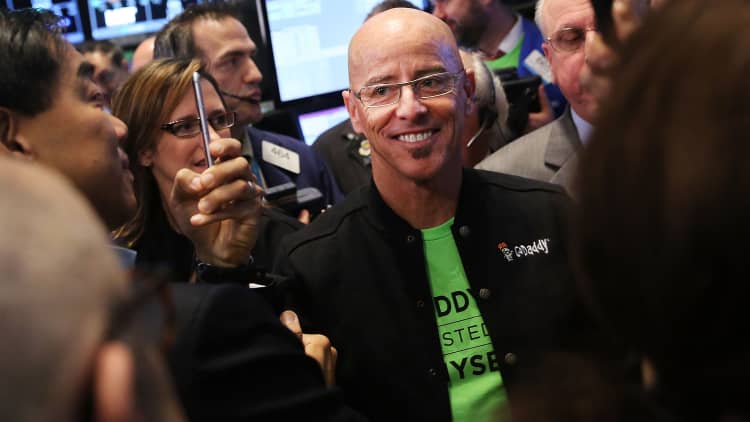
The H-1B visa program — which enables U.S. companies to hire high-skilled foreign workers — has become a political lightning rod but remains essential for American companies to hire the technical talent they need to compete on a global scale, said GoDaddy CEO Blake Irving.
"We do not produce enough technically qualified candidates in this country," he said. "You can't take an 18-month training program and produce a machine-learning scientist."
President Donald Trump may soon sign an executive order revamping the H-1B visa system which, along with a related program, makes 85,000 temporary work visas available each year and is widely used by U.S. tech companies to fill technical roles. A draft executive order suggests existing policies prioritize foreign workers and aims to make sure the programs instead safeguard and emphasize "the jobs, wages and well-being of United States workers."
Irving was particularly concerned about overseas competition.
The American university system is good at training foreign workers for tech jobs, and it is essential that the U.S. government allows them to stay in the country to fulfill U.S. jobs, he said. Otherwise, we train workers from countries like China and India and then send them back to those countries to set up tech ecosystems that compete with Silicon Valley, Irving said.
Though there may be marginal instances in which some companies abuse the H-1B system to replace American workers with cheap foreign workers, those practices are extremely rare, Irving said. "There's always going to be some marginal groups that will abuse the system, it's true," he said. "There is a fraction of abuse."
Forty percent of Fortune 500 companies were founded by immigrants or the children of immigrants and H-1B workers fulfill highly paid roles where existing demand cannot be met by domestic candidates, he said.
"This isn't about trying to export jobs," Irving said. "People get confused with H-1B exporting jobs — that's just not the case."



